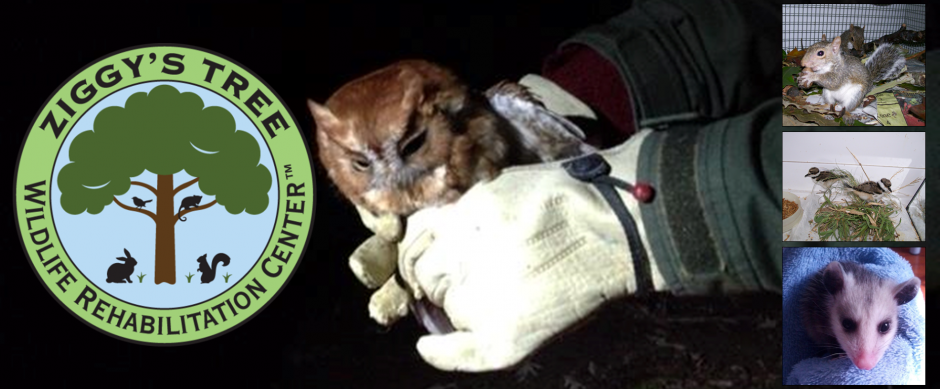What should you do if you find a wild animal you think is orphaned or injured? The first step is to determine if it actually needs help. Some animals, such as deer and cottontail rabbits, leave their young for several hours a day. Songbirds can come and go from the nest so quickly that you miss them if you aren’t watching closely. And a hawk on the ground with its wings spread out may just be eating lunch. In many ways, wild animals can be like people – they have their own peculiar characteristics. We can help you determine if the behavior you are witnessing is normal for the species, or if the animal is in need of assistance. If you can answer “yes” to any of the following questions, then the animal may need assistance:
- Does the animal attempt to escape?
- Is it an adult animal that is easily captured?
- Does it have an obvious injury, i.e. bleeding, puncture wounds, exposed bone?
- Does the bird remain on the ground when the others leave?
- Is it a nocturnal animal that is out during the day?
- Pinkie baby (no fur/no feathers) out of the nest and the nest cannot be located?
- Is it entangled in litter or fishing line?
- Is it trapped and unable to escape?
- Has a cat or a dog attacked it?
*Please remember that we have been licensed to care for certain animals in certain ways, so for the sake of the animal you found, please do not attempt to care for it or keep it as a pet. Tennessee state law and federal regulations prohibit individuals from keeping wild animals without a permit. If you determine the animal is in need of assistance, please contact a licensed wildlife rehabilitator or contact us here. If you feel that the animal you have found is in immediate danger, you should follow the guidelines below:
- Get a cardboard box or pet carrier and place an old towel or rag inside.
- Wear heavy gloves to prevent risk of injury and/or disease.
- If the animal is small and not trying to bite you, pick it up and put it in your container.
- If the animal is large and trying to bite, gently use a broom to move the animal into the container.
- Place the container in a warm, dark and quiet place. Contact us or your local wildlife rehabilitation center.
Warmth is critical as the animal’s body temperature is lowered by shock and stress.
Find more important information when helping injured or orphaned wildlife on our FAQ page.

